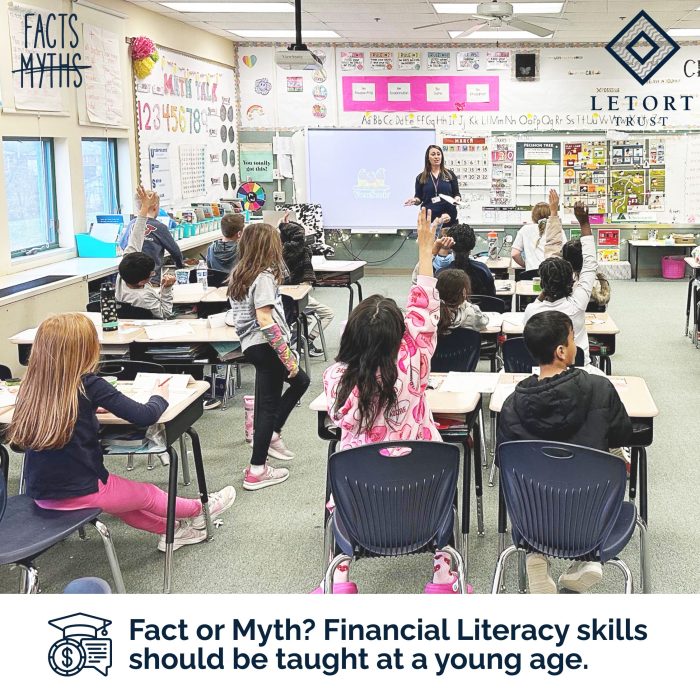
Financial literacy is a lifelong skill that benefits people of all ages, not just adults.
Fact!
- Kids and teens make financial decisions too. From saving allowance money to understanding the cost of wants vs. needs, early financial habits shape future money management skills.
- Young adults face major financial choices. College loans, credit cards, and first jobs require knowledge of budgeting, debt management, and investing.
- Financial habits start early. Studies show that financial behaviors are often set by age seven, making early education critical for long-term success.
- Without financial literacy, young people are more vulnerable. Poor money management can lead to high debt, financial stress, and difficulty building wealth later in life.
